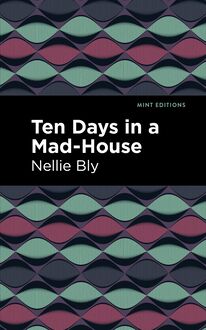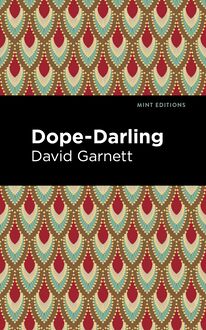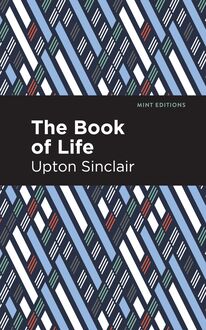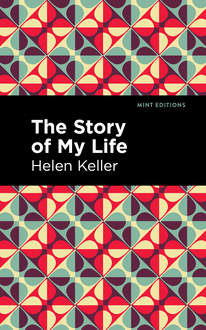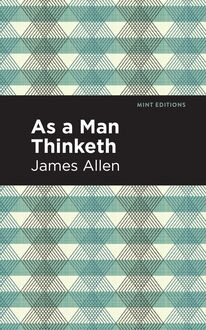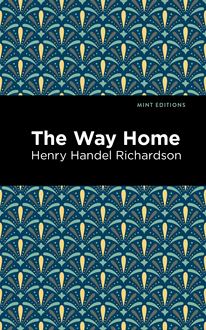-
 Univers
Univers
-
 Ebooks
Ebooks
-
 Livres audio
Livres audio
-
 Presse
Presse
-
 Podcasts
Podcasts
-
 BD
BD
-
 Documents
Documents
-
- Cours
- Révisions
- Ressources pédagogiques
- Sciences de l’éducation
- Manuels scolaires
- Langues
- Travaux de classe
- Annales de BEP
- Etudes supérieures
- Maternelle et primaire
- Fiches de lecture
- Orientation scolaire
- Méthodologie
- Corrigés de devoir
- Annales d’examens et concours
- Annales du bac
- Annales du brevet
- Rapports de stage
La lecture à portée de main

Vous pourrez modifier la taille du texte de cet ouvrage
Découvre YouScribe en t'inscrivant gratuitement
Je m'inscrisDécouvre YouScribe en t'inscrivant gratuitement
Je m'inscrisEn savoir plus
Vous pourrez modifier la taille du texte de cet ouvrage
En savoir plus

Description
Married Love or Love in Marriage (1918) is a book on reproductive health by Marie Stopes. Banned in the US and scorned by the British establishment, Married Love or Love in Marriage was controversial for its openness regarding sex and the use of contraceptives between husbands and wives. While relatively conservative by today’s standards, the pioneering work was an essential, bestselling book that guided generations of men and woman on how to nurture happy, healthy sexual relationships without increasing the stresses of motherhood and everyday life. "More than ever to-day are happy homes needed. It is my hope that this book may serve the State by adding to their number. Its object is to increase the joys of marriage, and to show how much sorrow may be avoided." Working with this goal in mind, Marie Stopes set out to rewrite the rulebook on sexual relationships between married men and women. Published the same year that she opened the first birth control clinic in the United Kingdom, Married Love or Love in Marriage pursued the thesis that desire and happiness could be nurtured within the home between a husband and wife by educating men and women on the use of contraceptives. An immediate bestseller, Stopes’ work marked a seismic shift in discourse on women’s reproductive health, paving the way for many of the reforms and attitudes some take for granted today. Risking her reputation and leaving behind a successful career in paleobotany, Stopes dedicated herself to the rights of women in England and around the world, for whom the burden of motherhood often proved not only limiting, but detrimental to their physical and mental health. With a beautifully designed cover and professionally typeset manuscript, this edition of Marie Stopes’ Married Love or Love in Marriage is a classic of British scientific literature reimagined for modern readers.
Sujets
Informations
| Publié par | Mint Editions |
| Date de parution | 08 juin 2021 |
| Nombre de lectures | 1 |
| EAN13 | 9781513221588 |
| Langue | English |
Informations légales : prix de location à la page 0,0350€. Cette information est donnée uniquement à titre indicatif conformément à la législation en vigueur.
Extrait
Married Love or Love in Marriage
Marie Stopes
Married Love or Love in Marriage was first published in 1918.
This edition published by Mint Editions 2021.
ISBN 9781513223087 | E-ISBN 9781513221588
Published by Mint Editions®
minteditionbooks.com
Publishing Director: Jennifer Newens
Design & Production: Rachel Lopez Metzger
Project Manager: Micaela Clark
Typesetting: Westchester Publishing Services
C ONTENTS P REFACE BY D R. J ESSIE M URRAY L ETTER FROM P ROFESSOR S TARLING, F . R . S ., &C. A UTHOR’S P REFACE L ETTER FROM F ATHER S T. J OHN AND R EPLY I. T HE H EART’S D ESIRE II. T HE B ROKEN J OY III. W OMAN’S “ C ONTRARINESS” IV. T HE F UNDAMENTAL P ULSE V. M UTUAL A DJUSTMENT VI. S LEEP VII. M ODESTY AND R OMANCE VIII. A BSTINENCE IX. C HILDREN X. S OCIETY XI. T HE G LORIOUS U NFOLDING N OTES ON THE T EXT
P REFACE
B Y
Miss J ESSIE M URRAY , M.B., B.S.
I n this little book Dr. Marie Stopes deals with subjects which are generally regarded as too sacred for an entirely frank treatment. Some earnest and delicate minds may feel apprehensive that such frankness in details is “dangerous,” because the effect on prurient minds might be to give them food for their morbid fancies. It is just such a fear which has been largely responsible for the silence and mystery which have for so long been wrapped round the sacred rites of mating.
The question now is, Has this reticence been carried too far? Has it been carried so far that it now tends to defeat its purpose of safeguarding public morals? There are many who unhesitatingly answer such questions in the affirmative. Their intimate knowledge of human lives compels them to recognise that at least as much harm is done by silence as by speaking out. Everything depends on how the matter is presented.
Those who are shocked at the publication of such a book as this on the ground that it gives material for impure minds to sport with, need only reflect that such material is already amply provided in certain comic papers, in hosts of inferior novels, too often on the stage and film, and presented thus in coarse and demoralising guise. It can do nothing but good to such minds to meet the facts they are already so familiar with in a totally new light.
On the other hand, there are all the earnest and noble young minds who seek to know what responsibilities they are taking on themselves when they marry, and how they may best meet these responsibilities. How few of them have more than the vaguest ideas on the subject! How few of them know how or where to obtain the help they desire!
They recoil from the coarse and impure sources of information which are so accessible, and they hesitate to approach those they have learned to regard as virtuous and modest, realising that from such they will receive so little actual information, and that so veiled as to be almost useless.
Dr. Stopes has attempted to meet the need of such seekers, and her book will certainly be warmly welcomed by them. It is calculated to prevent many of those mistakes which wreck the happiness of countless lovers as soon as they are actually married. If it did no more than this it would be valuable indeed!
But there is an even more important aspect to be considered—the effect on the child. In all civilised lands there is a growing sense of responsibility towards the young.
The problems of their physical and mental nurture attract more and more attention day by day. Eugenists, educationists, physicians, politicians, philanthropists, and even ordinary parents discuss and ponder, ponder and discuss, matters both great and small which have a bearing on the development of the child. By common consent the first seven years of life are regarded as the most critical. It is during these years that the foundations of the personality-to-be are laid—“well and truly” or otherwise. It is during these years that the deepest and most ineradicable impressions are made in the plastic constitution of the child, arresting or developing this or the other instinctive trend and fixing it, often for life.
And it is during these years above all that the parents play the most important role in the inner history of the child’s life, not so much by anything they directly teach through verbal exhortations, warnings, or commands, as by those subtler influences which are conveyed in gesture, tone, and facial expression. The younger the child, the more is it influenced through these more primitive modes of expression, and quite as much when they are not directed towards itself but are employed by the parents in their intimate relations with one another in the presence of their apparently unobserving child—the infant in its cot, the toddling baby by the hearth, the little child to all appearance absorbed in its picture book or toy.
Is it not of the utmost importance that these earliest impressions should be of the finest nature? And should we not therefore welcome all that may help—as this book can—to make the living cradle of the next generation as full of beauty and harmony as love and mutual understanding can?
The age-long conflict between the “lower” and the “higher” impulses, between the primitive animal nature and the specifically human developments of an altruistic and ethical order, are fought afresh in each soul and in every marriage.
We need to realise more clearly that the lower is never—ought never to be— eliminated but rather subsumed by the higher . No true harmony can be hoped for so long as one factor or the other is ignored or repressed.
Dr. Stopes makes some very important biological suggestions which should not be lightly dismissed. Further observation is required to establish or disprove her theory of the normal sexual cycle in women, but my own observation certainly tends to confirm it.
J. M. M URRAY
Letter from Professor E. H. S TARLING , M.D., B.S., F.R.S., Professor of Physiology , University of London
U NIVERSITY C OLLEGE ,
G OWER S TREET , L ONDON , W.C.,
November 23, 1917
D EAR D R . S TOPES ,
The need of such guidance as you give is very evident. After all, instinct in man is all insufficient to determine social behaviour, and there is need of instruction in the highest of physiological functions, that of reproduction, as there is in the lower functions of eating and drinking—the only difference being that in the former instruction can be deferred to a later age. And there is no doubt that in this case it is better to acquire knowledge by instruction than by a type of experience which is nearly always sordid and may be fraught with danger to the health of the individual and of the family.
At the present time it is of vital importance to the State that its marriages should be fruitful—in children, happiness, and efficiency (and all three are closely connected).
If your book helps in securing this object, your trouble will not have been in vain.
Believe me, Yours very truly, E RNEST H. S TARLING
A UTHOR’S P REFACE
M ore than ever today are happy homes needed. It is my hope that this book may serve the State by adding to their numbers. Its object is to increase the joys of marriage, and to show how much sorrow may be avoided.
T he only secure basis for a present-day State is the welding of its units in marriage; but there is rottenness and danger at the foundations of the State if many of the marriages are unhappy. Today, particularly in the middle classes in this country, marriage is far less really happy than its surface appears. Too many who marry expecting joy are bitterly disappointed; and the demand for “freedom” grows; while those who cry aloud are generally unaware that it is more likely to have been their own ignorance than the “marriage-bond” which was the origin of their unhappiness.
It is never easy to make marriage a lovely thing; and it is an achievement beyond the powers of the selfish, or the mentally cowardly. Knowledge is needed and, as things are at present, knowledge is almost unobtainable by those who are most in want of it.
The problems of the sex-life are infinitely complex, and for their solution urgently demand both sympathy and scientific research.
I have some things to say about sex, which, so far as I am aware, have not yet been said, things which seem to be of profound importance to men and women who hope to make their marriages beautiful.
This little book is less a record of a research than an attempt to present in easily understandable form the clarified and crystallised results of long and complex investigations. Its simple statements are based on a very large number of first-hand observations, on confidences from men and women of all classes and types, and on facts gleaned from wide reading.
My original contributions to the age-long problems of marriage will principally be found in Chapters IV, V, and VIII. The other chapters fill in what I hope is an undistorted picture of the potential beauties and realities of marriage.
The whole is written simply, and for the ordinary untrained reader, though it embodies some observations which will be new even to those who have made scientific researches on the subjects of sex and human physiology. These observations I intend to supplement and publish at greater length and in more scientific language in another place.
I do not now touch upon the many human variations and abnormalities which bulk so largely in most books on sex, nor do I deal with the many problems raised by incurably unhappy marriages.
In the following pages I speak to those—and in spite of all our neurotic literature and plays they are in the great majority—who are nearly normal, and who are married or about to be married, and hope, but do not know how, to make their marriages beautiful and happy.
To the reticent, as to the conventional, it may seem a presumption or a superfluity to speak of the details of the most complex of all our functions. They ask: Is not instinct enough? The answer is No. Instinct is n
Attention
En entrant sur cette page, vous certifiez :
- 1. avoir atteint l'âge légal de majorité de votre pays de résidence.
- 2. avoir pris connaissance du caractère érotique de ce document.
- 3. vous engager à ne pas diffuser le contenu de ce document.
- 4. consulter ce document à titre purement personnel en n'impliquant aucune société ou organisme d'État.
- 5. vous engager à mettre en oeuvre tous les moyens existants à ce jour pour empêcher n'importe quel mineur d'accéder à ce document.
- 6. déclarer n'être choqué(e) par aucun type de sexualité.
YouScribe ne pourra pas être tenu responsable en cas de non-respect des points précédemment énumérés. Bonne lecture !
-
 Univers
Univers
-
 Ebooks
Ebooks
-
 Livres audio
Livres audio
-
 Presse
Presse
-
 Podcasts
Podcasts
-
 BD
BD
-
 Documents
Documents
-
Jeunesse
-
Littérature
-
Ressources professionnelles
-
Santé et bien-être
-
Savoirs
-
Education
-
Loisirs et hobbies
-
Art, musique et cinéma
-
Actualité et débat de société
-
Jeunesse
-
Littérature
-
Ressources professionnelles
-
Santé et bien-être
-
Savoirs
-
Education
-
Loisirs et hobbies
-
Art, musique et cinéma
-
Actualité et débat de société
-
Actualités
-
Lifestyle
-
Presse jeunesse
-
Presse professionnelle
-
Pratique
-
Presse sportive
-
Presse internationale
-
Culture & Médias
-
Action et Aventures
-
Science-fiction et Fantasy
-
Société
-
Jeunesse
-
Littérature
-
Ressources professionnelles
-
Santé et bien-être
-
Savoirs
-
Education
-
Loisirs et hobbies
-
Art, musique et cinéma
-
Actualité et débat de société
- Cours
- Révisions
- Ressources pédagogiques
- Sciences de l’éducation
- Manuels scolaires
- Langues
- Travaux de classe
- Annales de BEP
- Etudes supérieures
- Maternelle et primaire
- Fiches de lecture
- Orientation scolaire
- Méthodologie
- Corrigés de devoir
- Annales d’examens et concours
- Annales du bac
- Annales du brevet
- Rapports de stage
